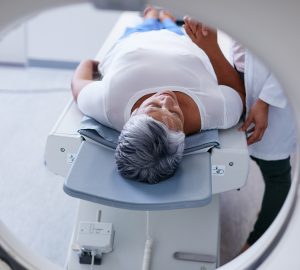Injuries happen. At some point in our lives we have been the victim of chance or the bearer of years of chronic pain, and for the athletes among us, the impact of injury can be substantially higher. Do we bring it upon ourselves? We push hard through the warning signs, haphazardly playing our sport on a tender limb, pushing for that last rep in the gym knowing that your drive to win won’t let you quit. This is where I found myself last year, training for my first strongman competition when disaster struck. A partial rupture of my bicep tendon in my right arm. An injury that in hindsight had warning signs but at the time was a shock and felt like it had happened out of nowhere.
Now, being an athletic minded person, I did what many would do in the same situation and competed anyways. I pushed my body harder than before. I pushed until it hurt but I competed and did as well as I could only losing out to the top of the novice division due to my injury in the last event. Now with one event done I would have time to heal right? Nope right into the next event.
What drives us to push through the pain, to ignore common medical thought of letting an injury heal. We have all seen it with popular sports figures who get cortisone injections before each game to push through their injuries to help their team. I too pushed and competed. It hurt but I thought I was in the clear. I never felt the rest of the bicep go. I speculate it was a bicep curl of all things that did it in, but two weeks later I was on the table thanks to some of our cities best sport medicine professionals with two large new scars encased in a cast. This was my first real injury, and I learned quickly how big of an impact of injury it would be.
Depression in athletes post injury is increasingly common. Being taken away from something that makes up some of your identity is tragic. For myself, my entire next year of plans was taken from me. When looking at college athletes who sustain injuries, the NCAA found a host of emotional responses in the athletes such as sadness, isolation, loss of motivation, frustration, and anger. I had all of this, I grieved like I had just lost a family member. I felt so alone even surrounded by loved ones I felt so useless and drove myself into an anxious spiral. Having experienced this, I can see it in others now. Hearing their experiences, I can empathize with them completely.
Dealing with these emotional scars takes over all parts of the injured life. When an injury first happens the only thing you can do is wait. Your body will heal but it leaves you with all the time in the world for anxiety and depression. I tried to push through it. I tried to be self-sufficient and it took the combined force of my teachers, my wife and my friends to really see any sunshine when all I felt was dark days.
I would like to share 5 bullets that helped put me on that road to recovery.
- Acceptance: There was nothing I could do about the impact of injury but move forward. Sitting in bed and trying to analyze every misstep I had leading up to the incident just reinforced the darkness that was already there. This takes time just like a normal grieving process and you will have to work towards knowing that the past is gone, and the future is ahead.
- Opening up: My teachers helped me get the help I needed in the form of counselling. Allowing yourself to be open to someone who can facilitate and empathize with your feelings helped me immensely. Learning how to vent the darkness without placing it on those around me was what helped steer me towards acceptance
- Moving forward: Having a forward growth mindset can open those healthy channels to focus your mind onto something beneficial. Pour yourself into your rehabilitation. Focus on soft skills for your sport or something as simple as not giving up. There is something to be said for the power of positivity.
- Learning your limits: For myself, I felt I could keep going at the same pace without help from anyone. This caused a buildup of stress and anxiety. I was a full-time student, training clients for a practicum, working for a gym, and training 4 days a week. I had to learn how to put my focus on the important aspects and realize my temporary need to do less.
- Self-efficacy: the ability to believe in yourself. I was doom and gloom after my injury. I thought everything I worked for was over, and it took working through the darkness and knowing that believing in myself was the only way to make it through.
My story has a happy ending, I want your story to have one as well. Believe in yourself and know that there are people out there that want to help you through this, you are not alone when working throigh an impact of injury.
By: Matty Lovegrove









